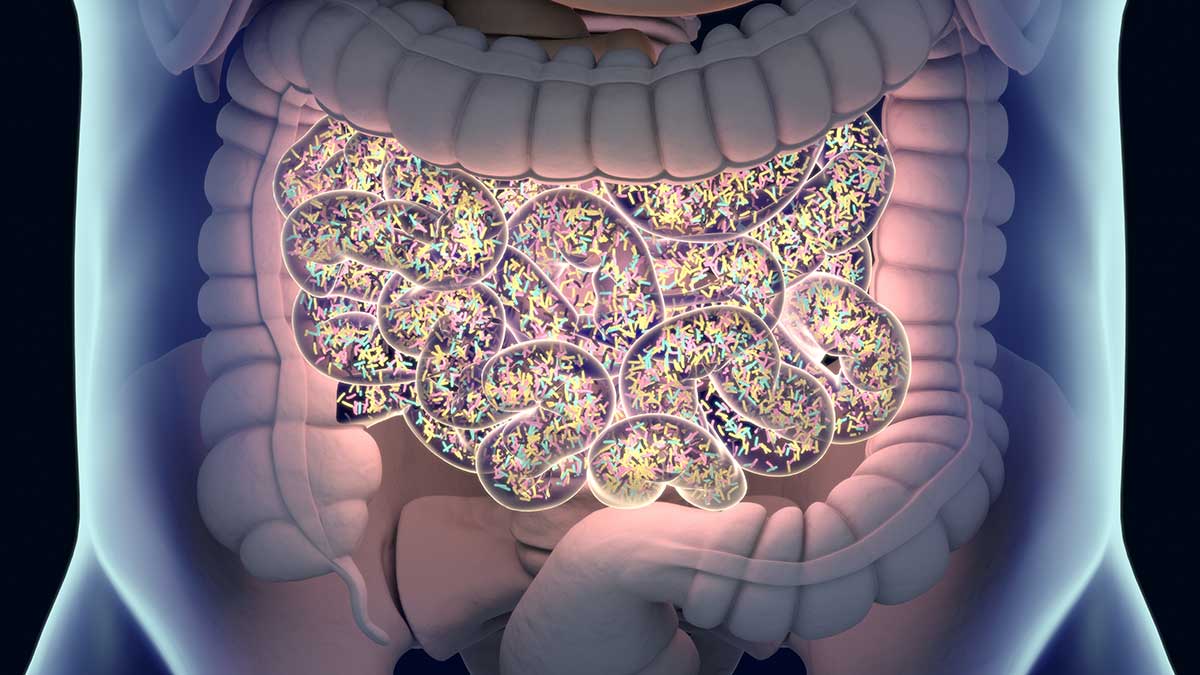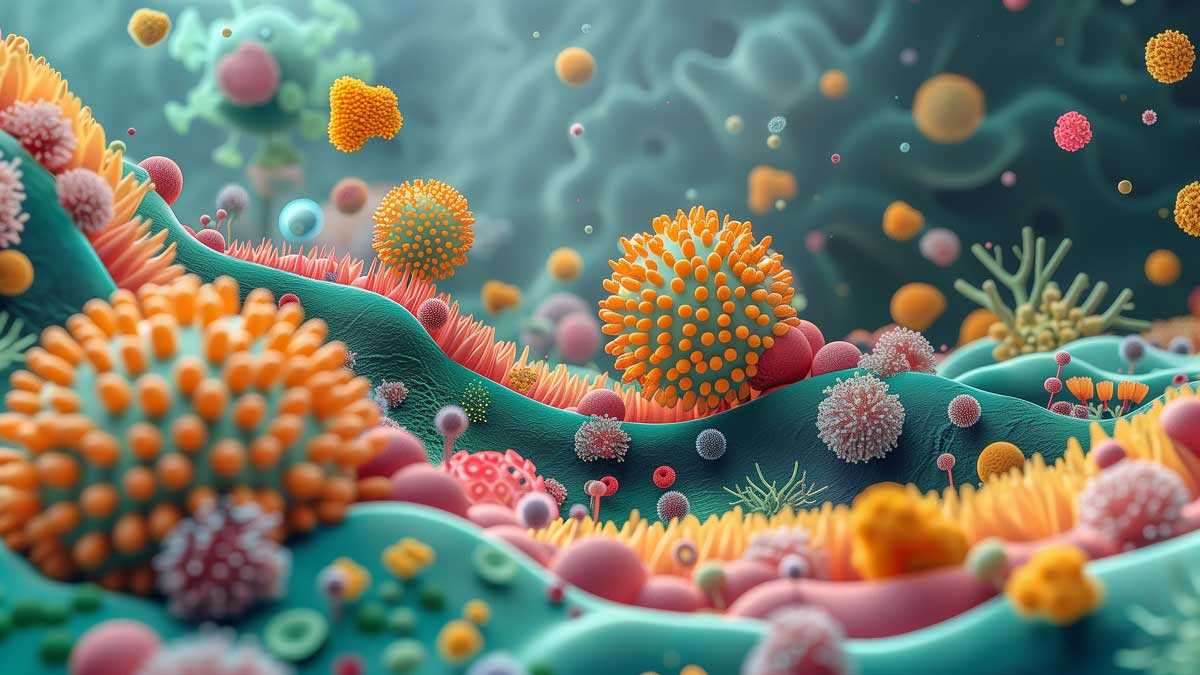In the intricate ecosystem of the human body, perhaps no other component plays as critical a role in overall health as the microbiome. This complex network of trillions of microorganisms—bacteria, fungi, viruses, and other microbial entities—resides primarily in our gut but also populates other areas such as the skin, mouth, and respiratory tract. Understanding the microbiome and its profound impact on our health is not just a topic of scientific inquiry but a crucial element of daily wellness practices.
Recent research reveals that a healthy microbiome is fundamental to digesting food, producing key nutrients, regulating the immune system, and even managing emotional health through the gut-brain axis. However, modern lifestyles characterized by processed diets, overuse of medications, and inadequate physical activity can disrupt this delicate balance, leading to a myriad of health issues.
In this article we will delve into the essential functions of the microbiome, the consequences of its imbalance, and practical strategies to nurture and protect this vital aspect of our health. From the science of gut-brain communication to the impact of dietary choices and lifestyle changes, we will explore how to harness the power of the microbiome to enhance your well-being and prevent disease. Join us as we uncover the secrets of the microbiome and learn to foster an internal environment that promotes life-long health.
Table of Contents
What Is the Microbiome?
Imagine a bustling city where every street, building, and park is teeming with life—not human, but microbial. This city exists in you, on you, and all around you. Microbes, tiny organisms too small to be seen with the naked eye, inhabit nearly every part of our environment and our bodies—from the air we breathe to the depths of our guts.
The term “microbiome” refers to this vast community of microscopic organisms, including bacteria, viruses, and fungi, that inhabit a particular environment, especially within the human body. When we talk about our microbiome, we are mostly referring to the trillions of these organisms that live in and on us, playing a crucial role in our health.
How Vast Is the Microbiome?
- Our bodies are a universe of about 100 trillion microbial cells—three times the number of human cells we have.
- These microbial cells weigh up to three pounds in total, nearly the weight of our brain.
- The gut is the epicenter of this microbial universe, housing the majority of these organisms compared to other areas like the skin, vagina, or ears.
The Initial Colonization
Our journey with these microscopic companions begins at birth. As infants, our first significant exposure to microbes occurs during our passage through the birth canal and from the breast milk we consume. This initial “seeding” of microbes from our mothers sets the foundation for our microbiome, which evolves as we grow and interact with the world.
A Unique Ecosystem
Each person’s microbiome is as unique as their fingerprint, shaped by their own DNA and life experiences. This microbial network functions much like an extra organ, tirelessly working to facilitate smooth bodily processes, from digesting food to regulating the immune system.
A Symbiotic Relationship
We share a symbiotic relationship with our microbiome; we provide them a home, and in return, they help keep us healthy. The largest groups found within our microbiome belong to the phyla Bacteroidetes and Firmicutes. Understanding this complex interaction is key to understanding much about our health and well-being.
Microbiome Symbiosis and Function
Our body’s relationship with the microbiome is not just a close association; it is a symbiotic partnership where both parties benefit immensely. This symbiosis involves various organisms, primarily bacteria, that perform vital functions crucial for our health.
Understanding Symbiosis
Symbiosis in the microbiome context is a mutualistic relationship. This means both the human host and the microbial residents benefit from each other’s existence. The bacteria that make up our microbiome come in diverse shapes and sizes, each with specific roles that contribute to the overall health and functioning of our body.
Key Players and Their Roles
Some of the well-known bacteria in our microbiome include:
- Lactobacillus
- Bifidobacterium
- Acidophilus
- Clostridia

These bacteria are not only found in our bodies but are also present in various foods and beverages, and even on our hands. They perform tasks that are crucial for maintaining health, such as:
Energy Production and Gut Health
For instance, Clostridia, a member of the Firmicutes phyla, resides in the large intestine and processes prebiotics like flax, garlic, and onions. This process helps produce essential fatty acids such as butyrate, vital for energy production in our cells’ mitochondria and for maintaining the integrity of the gut lining.
Vitamin Synthesis
Our microbiome helps synthesize essential vitamins like Vitamin K, certain B vitamins, and short-chain fatty acids (SCFAs) including butyrate, acetate, and propionate, which are crucial for human cell functions.
Immune System Stimulation
The microbiome plays a fundamental role in educating and regulating our immune system, enhancing our resistance to infections and potentially reducing the risk of chronic illnesses.
Digestive Support
It contributes enzymes that break down carbohydrates and polyphenols, aids in the fermentation of indigestible fibers into fatty acids, and is involved in the safe breakdown of potentially toxic food compounds.
The Role of Probiotics
In addition to our naturally occurring microbiota, we can enhance our gut flora through probiotics. These supplemental forms of beneficial bacteria are recommended particularly when there are digestive imbalances. Probiotics are widely available and can support the restoration of a healthy microbiome balance.
Celebrating the Microbiome
It’s essential to recognize the remarkable capabilities of our unique, indigenous microbiome:
- Comprised of over 1,000 different species, with 160 species residing in the gut.
- Hosts about 3 million genes, far surpassing the roughly 20,000 human protein-coding genes, highlighting its complex functionality.
- Plays a significant role in cancer protection and overall disease prevention.
Understanding and appreciating the intricate work our microbiome performs can deepen our appreciation for how interconnected we are with these microscopic life forms. As we continue to uncover more about the microbiome, we learn not only more about our bodies but also how to better support our health through mindful nutrition and lifestyle choices.
Dysbiosis and Disease
When the delicate balance of our microbiome is disrupted, a condition known as dysbiosis occurs. Dysbiosis can significantly impact our health, leading to a variety of diseases and conditions that affect not only our gut but virtually every system in our body.
Factors Leading to Dysbiosis
Several lifestyle and environmental factors can disrupt the healthy balance of our microbiome:
- Poor Mental Health: Stress, anxiety, and depression can alter gut flora, impacting the overall ecosystem.
- Unhealthy Eating Habits: Diets high in processed foods, sugars, and unhealthy fats can negatively affect microbiome diversity and function.
- Physical Inactivity: Lack of regular exercise can lead to less diversity in gut bacteria.
- Social and Emotional Deprivation: Absence of love, joy, social interactions, and positive emotional environments can contribute to microbiome imbalance.
- Monotonous Lifestyle: Lack of stimulation and variety in daily activities can also impact our microbiome health.
Common Health Conditions Linked to Dysbiosis
Dysbiosis can manifest in numerous gastrointestinal disorders and other health issues, including:
- Irritable Bowel Syndrome (IBS)
- Inflammatory Bowel Disease (IBD), including Crohn’s Disease and Ulcerative Colitis
- Gastroesophageal Reflux Disease (GERD)
- Chronic abdominal pain
- Excessive gas (flatulence)
- Constipation
- Diarrhea
- Bloating
- Appendicitis
- Polyps and cancers of the gut
Broader Impacts of Dysbiosis
Beyond the digestive system, disruptions in the microbiome can influence nearly every organ system in the body, linking to both physical and mental health conditions. Research increasingly shows that microbiome disturbances can play a role in:
- Mental Health Disorders: Conditions like depression and anxiety can be exacerbated by or even stem from microbial imbalances.
- Autoimmune Diseases: Such as rheumatoid arthritis and multiple sclerosis, where an imbalanced microbiome may trigger inappropriate immune responses.
- Metabolic Disorders: Including obesity and type 2 diabetes, where altered gut bacteria can influence metabolic processes.
- Skin Conditions: Like eczema and acne, which can be influenced by the state of the gut microbiome.
- Neurological Health: Emerging studies suggest a gut-brain connection where microbiome health impacts neurological and cognitive functions.
Addressing Dysbiosis
Understanding the triggers and effects of dysbiosis is crucial for preventing and managing these conditions. By addressing lifestyle factors such as diet, exercise, and stress management, and fostering positive social interactions and emotional health, we can support a balanced microbiome. This, in turn, enhances our overall health and reduces the risk of associated diseases.
Nutrition Is Key in Gut Health and Overall Health of the Body
The significance of nutrition in determining the health of our gut and, by extension, our overall well-being cannot be overstated. What we eat directly influences the types of microorganisms that thrive in our colon, and by nurturing a diverse and healthy microbiota, we can enhance our health in profound ways.
The Impact of Diet on Microbiota
High-Fiber Foods
Consuming a high-fiber diet is crucial as fiber can only be broken down and fermented by enzymes produced by the microbiota in the large intestine. This fermentation process releases short-chain fatty acids (SCFAs) which are pivotal for health, aiding in reducing inflammation and maintaining gut integrity.
Prebiotic Foods
Prebiotics are types of dietary fiber that feed the good bacteria in our gut. These include:
- Fruits and Vegetables: Apples, bananas, onions, garlic, and leeks.
- Grains: Barley, oats, and wheat.
- Nuts and Legumes: Beans and other legumes.
- Others: Dandelion greens, asparagus, seaweed, and Jerusalem artichokes.
Introducing prebiotic-rich foods should be done gradually, especially for those with sensitive digestive systems, to avoid issues like gas and bloating.
Probiotic Foods
Probiotics are foods or supplements that contain live beneficial bacteria that support the health of the gut microbiome. Incorporating probiotic foods into your diet can help enhance gut health and overall well-being. Recommended probiotic foods include:
- Fermented Vegetables: Sauerkraut, kimchi, and pickled vegetables.
- Fermented Soy Products: Miso soup and tempeh.
- Fermented Beverages: Kombucha and certain types of kefir.
- Plant-based Yogurts: Always choose those made from organic sources if possible.
For those using animal-based products like yogurt or kefir, selecting organic options is advisable to avoid potential contaminants and to maximize health benefits.
General Dietary Recommendations
- Limit Processed Foods: Reducing intake of processed and high-animal-fat foods can alleviate many common digestive issues. Those on vegetarian or vegan diets often experience fewer gastrointestinal problems due to their higher intake of fiber and lower intake of processed foods.
- Balanced Eating: Emphasizing a balanced diet rich in vegetables, fruits, whole grains, and healthy proteins can foster a robust microbiome, which in turn supports overall health.
By focusing on a diet that supports the microbiome with prebiotics and probiotics, you not only boost your gut health but also contribute to your body’s overall function and disease resistance. Nutrition isn’t just about maintaining weight or muscle mass; it’s about cultivating an internal environment that promotes life-long health and vitality.

Drug Use Alters the Microbiome
The influence of medications on our health extends beyond their intended effects; they also significantly impact the microbiome, the complex community of microorganisms living in our bodies. Understanding how various drugs affect these microbial populations can help us manage potential side effects and maintain overall health.
The Impact of Medications on the Microbiome
Antibiotics
Perhaps the most profound impact on the microbiome comes from antibiotics. While they are effective in killing harmful bacteria causing infections, they also indiscriminately kill beneficial bacteria in the gut. This can lead to a condition known as dysbiosis—where the normal microbial balance is disrupted, potentially leading to further health complications.
Other Medications
Beyond antibiotics, a variety of commonly used medications can alter the microbiome, including:
- Antidepressants
- Antacids and Proton Pump Inhibitors (PPIs): Used for reducing stomach acid.
- Antihistamines: Commonly used for allergies.
- Antihypertensives: Used for managing high blood pressure.
- Statins: Used to lower cholesterol levels.
- Vaccines: While primarily beneficial, they can also influence the microbiome in subtle ways.
Health Conditions Linked to Altered Microbiomes
The disruption of the microbiome by these drugs can contribute to a range of health issues, reflecting the critical role of these microorganisms in overall health:
- Digestive Disorders: Conditions like irritable bowel syndrome (IBS), inflammatory bowel disease (IBD), and increased susceptibility to infections such as Clostridioides difficile.
- Metabolic Issues: Disruption can lead to metabolic syndrome, insulin resistance, and diabetes, as well as obesity.
- Immune System Compromise: An imbalanced microbiome may lead to a loss of immune tolerance, resulting in autoimmune diseases.
- Mental Health: There is growing evidence linking gut health to mental well-being, suggesting that microbiome disruptions can affect mental health and contribute to conditions like depression and anxiety.
- Neurological Health: The gut-brain axis means that the health of the microbiome is closely tied to neurological function, potentially influencing conditions like Alzheimer’s disease and other neurodegenerative disorders.
- Systemic Health: Heart disease, liver disorders, thyroid imbalances, pancreatic issues, and problems in the genitourinary tract are also associated with microbiome disturbances.
Managing Medication Impacts on the Microbiome
To mitigate these effects, it is crucial to use medications judiciously and under the guidance of healthcare professionals. Where possible, alternatives that are less disruptive to the microbiome should be considered. Additionally, supplementing with probiotics and maintaining a diet rich in prebiotics can help restore and maintain a healthy microbiome balance during and after medication use.
Understanding the interaction between drugs and the microbiome underscores the importance of considering the holistic impact of medications on our health. This awareness can guide more personalized and effective health care strategies, promoting better overall health outcomes.
Second Brain: Understanding the Gut-Brain Axis
The concept of the gut being the “second brain” of the body is not just a metaphor but a reflection of the profound interconnection between the gut and the brain. This relationship, known as the gut-brain axis, is an emerging area of science that highlights the bidirectional communication between the central nervous system and the gastrointestinal tract.
The Role of the Gut-Brain Axis
Communication Network
The gut-brain axis involves a complex network of direct and indirect pathways between cognitive and emotional centers in the brain and peripheral intestinal functions. This includes the nervous system, the immune system, and hormonal pathways.
Neurochemical Production
The gut microbiome is integral to this process as it is capable of producing and responding to the same neurochemicals that the brain uses to regulate mood and cognition, such as serotonin, dopamine, and gamma-aminobutyric acid (GABA). These chemicals are vital for nerve transmission.
Role of Cytokines and Neuropeptides
Cytokines, which are cell signaling molecules driven by the immune system, and neuropeptides, which are small protein-like molecules used by neurons to communicate, are active participants in this communication. They ensure that messages are sent and received between the gut and the brain, influencing physical and emotional health.
Implications of Gut-Brain Communication
Mental Health
There is growing evidence to suggest that the state of the gut microbiome can affect mental health. Issues such as stress, anxiety, and depression have been linked to the health of the gut microbiome.
Digestive Health
Conversely, the brain’s health impacts gastrointestinal function. Stress and other emotional factors can exacerbate symptoms of gastrointestinal disorders, such as irritable bowel syndrome (IBS) and inflammatory bowel disease (IBD).
Unity and Collaboration
The interaction between the gut and the brain is characterized by unity and synchronicity. In a healthy individual, this interaction allows for smooth, efficient, and precise outcomes. The gut-brain axis exemplifies a spectacular relationship where human and microbe are not separate entities but parts of a cohesive system working in harmony.
This understanding encourages a holistic approach to health that acknowledges the importance of mental well-being, nutritional balance, and microbiome health as interconnected elements essential for overall wellness. Recognizing the gut as a second brain opens new pathways for treating various health issues, emphasizing the need for integrative strategies that support both gut and brain health.
How to Improve Your Microbiome Health
Improving the health of your microbiome is a multifaceted endeavor that involves diet, lifestyle choices, and environmental considerations. Here are some practical ways to support and enhance your microbiome health:
Focus on Diet
- Increase Intake of Plant-Based Foods: A diet rich in vegetables, fruits, and whole grains provides prebiotics that fuel beneficial bacteria.
- Incorporate Fermented Foods: Include foods like yogurt, kefir, sauerkraut, kimchi, and miso, which introduce healthy bacteria into your digestive system.
- Choose Organic Meat and Animal Products: If you consume meat, ensure it is organically raised to avoid antibiotics and hormones that can disrupt your gut flora.
- Avoid Highly Processed Foods and Sugary Beverages: These can harm your microbiome by promoting the growth of unhealthy bacteria.
Lifestyle Adjustments
- Engage in Regular Physical Activity: Exercise can enhance the diversity and number of beneficial bacteria in your gut.
- Ensure Adequate Sun Exposure: Moderate sun exposure helps regulate the circadian rhythm and can influence your microbiome positively.
- Maintain Healthy Social Interactions: Positive social engagements can improve mental health and, consequently, gut health.
- Practice Self-care and Play: Activities that make you happy and relaxed can reduce stress and its negative effects on your microbiome.
Environmental Considerations
- Use Natural Cleaning and Personal Care Products: Chemicals found in conventional products can disrupt the microbiome. Opt for natural alternatives.
- Minimize Exposure to EMFs: Electromagnetic fields from Wi-Fi and mobile devices may have an impact on your microbiome. Try to reduce exposure where possible.
- Avoid Artificial Chemicals in Home and Garden: These can be harmful not just to you but also to the beneficial bacteria that live with you.
Thoughtful Use of Supplements
- Be Selective with Supplements: Choose supplements like probiotics carefully, ideally under the guidance of a healthcare professional. This ensures that you only use what is beneficial for your body’s unique needs.
Holistic Environmental Awareness
- Harmonize Your External and Internal Environments: Paying attention to your living environment can help maintain your internal ecosystem. This includes everything from the air quality in your home to the water you drink.
By adopting these strategies, you can create a supportive environment for your microbiome, enhancing your overall health and well-being. Remember, a healthy microbiome means a healthier you, so these changes, while sometimes small, can have profound effects on your health.
References & Recommended Reading
The following resources are excellent for those looking to deepen your understanding of how the microbiome affects overall health and how to nurture it through diet, lifestyle, and more.
- Boyers, L. (2015). The Everything Guide to Gut Health: Boost Your Immune System, Eliminate Disease, and Restore Digestive Health. Everything Publishing.
- Capalino, D. et al. (2017). The Microbiome Diet Plan. Rockridge Press.
- Chuktan, R. (2015). The Microbiome Solution: A Radical New Way to Heal Your Body from the Inside Out. Avery Publishing Group.
https://valsec.barnesandnoble.com/w/the-microbiome-solution-robynne-chutkan-md/1120625285;jsessionid=894E4BAEB395A9B6BC849986D2ACB6C1.prodny_store01-p01v?ean=2940170516100 - Gilbert, J. et al. (2018). “Current Understanding of the Human Microbiome.” Nature Medicine, 24(4), pp. 392-400.
https://www.nature.com/articles/nm.4517 - Lenard, L. et al. (2001). Why Stomach Acid Is Good for You: Natural Relief from Heartburn, Indigestion, Reflux and GERD. M. Evans and Company.
https://rowman.com/ISBN/9781590771662/Why-Stomach-Acid-Is-Good-for-You-Natural-Relief-from-Heartburn-Indigestion-Reflux-and-GERD
Disclaimer: All materials presented in this article are for information purposes only. All materials are of the presenter’s research and opinion and may not equal that of the viewing audience.





